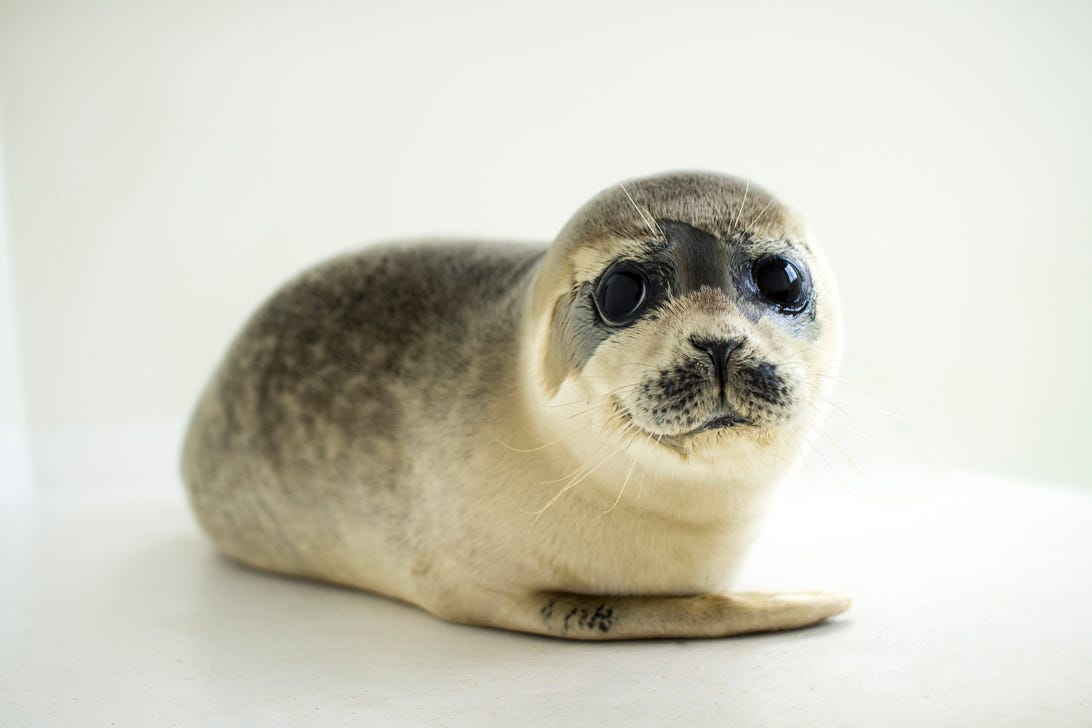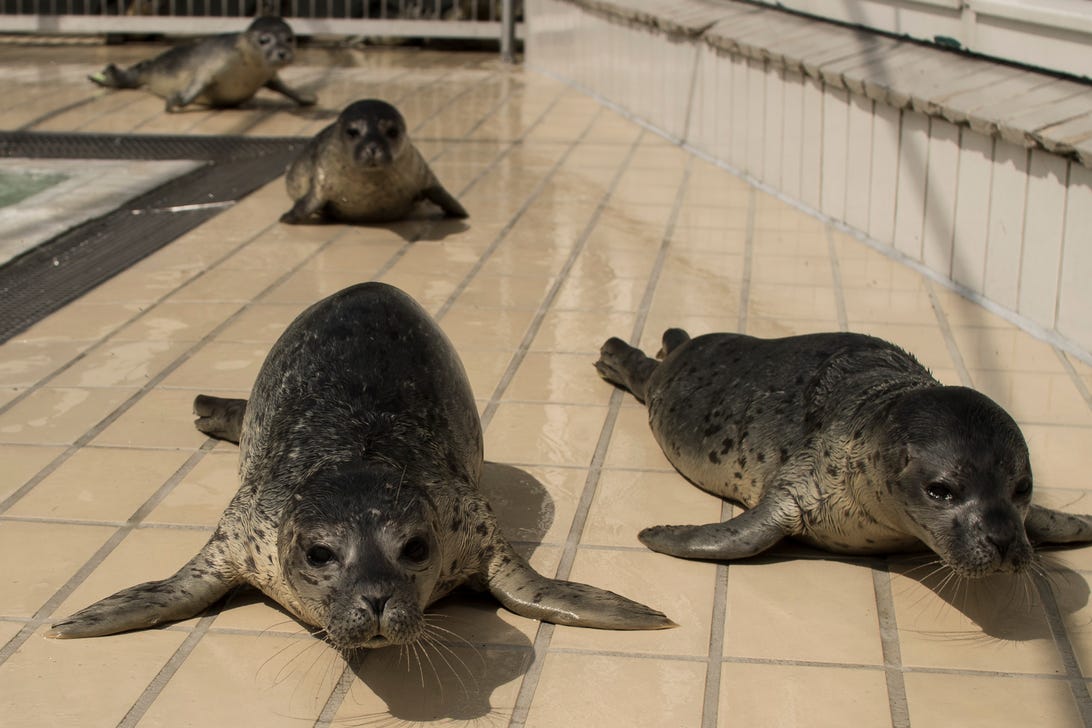
A baby seal from the Seal Centre Pieterburen.
John O' ConnorWhen humans are babies, despite a vocabulary limited to "goo's" and "gaa's," we deliver thoughts and adapt to environmental sounds by adjusting the cadence of our coos. Scientists suggest that seal pups can fine-tune their adorable "arfs" too, a rare feature for mammals besides us.
After exposing eight baby seals to audio clips of the Wadden sea with varying degrees of loudness, researchers found pups voluntarily lowering their tone during more intense soundscapes instead of raising it to compete with the noise. The team published its findings Tuesday in the journal Philosophical Transactions of the Royal Society B Biological Sciences.
While past research has supported seals' ability to mimic sounds, this study, the paper says, is the first observation of the slippery grey animals' tonal alterations while still in puppyhood.
"If baby seals acted as most animals, we would just expect them to increase the intensity of their voices as noise increased," said Andrea Ravignani, a researcher at the Max Planck Institute for Psycholinguistics. "However, what seals did was lowering the pitch of their voices to escape the frequency range of noise, something that only animals with good control of their larynx -- including humans but potentially excluding most mammals -- can do."
While it might seem contradictory that the baby seals lowered their voice in response to enhanced ambient sounds, the shift indicates an active volume adjustment. That means the pups have vocal plasticity, or the ability to alter vocal tone like humans.
Animals who don't switch tones tend to reflexively raise their voice in an attempt to combat loud noises, a phenomenon called the Lombard effect. Humans also exhibit the Lombard effect when arguing with someone or speaking in a chaotic environment.
Unlike non-tone-switching animals, however, humans can reject the Lombard effect once they realize it's happening, then cherry-pick a tone for the situation. Ravignani and his team found seal pups doing just that.

Seal pups tested for vocal plasticity
John O' ConnorAnd if you were wondering why these puppies of the sea would choose to soften their tone amid lots of noise, the paper offers a few functional explanations. First, it suggests the simulated soundscapes presented to the pups reminded them of wild wind noise.
Lower tones propagate better in the wind, the paper says, helping sound carry across greater distances. But the team's other reason (and my personal favorite) is the baby seals dropped to lower tones as a way to express themselves and showcase their individuality.
The researchers do note, though, that one seal pup was an anomaly. It raised its voice per the Lombard effect when exposed to the louder audio, while the others lowered theirs. "Based on these results," the paper states, "we cannot exclude that seal pups can increase the amplitude of their voices in response to noise."
Baby seal sounds could aid linguistic studies
For an animal to have vocal plasticity, their brain must somehow communicate with the body's voice-production center, or larynx, Ravisnani and fellow researchers say.
"The human ability to speak and sing relies on our exquisite control of vocal organs," Ravignani said. "Especially our larynx and vocal cords. If you put your hand on your throat while saying 'a', the vibration you feel are your vocal cords vibrating about 100 times per second. Without our developed control for sound production, spoken language -- including learning new sounds over infancy -- would be impossible."
Adding that, "seals may be one of the very few mammals which, like humans, when singing or speaking a tonal language, can flexibly modulate the pitch of their voices." Studying how seals adjust their tones could help solve the mystery of human speech patterns.
Of course, we know our infant gibberish transforms into real words, which then transition to coherent phrases and tonally signatured, structured ideas. But how the entire evolution happens is still up for debate.
"By finding another mammal who can modulate the pitch of its voice, we can start building an evolutionary tree of building blocks of speech and show that some of these are not in fact uniquely human," Ravignani said. "Showing that a baby seal does, spontaneously and without training, what our closest living relatives -- chimpanzees -- cannot do even after years of training is quite striking."
"seal" - Google News
November 02, 2021 at 11:01AM
https://ift.tt/2Y5J4QI
Like humans, baby seals can change their tone of voice - CNET
"seal" - Google News
https://ift.tt/3c1qdrW
https://ift.tt/2SzWv5y

No comments:
Post a Comment